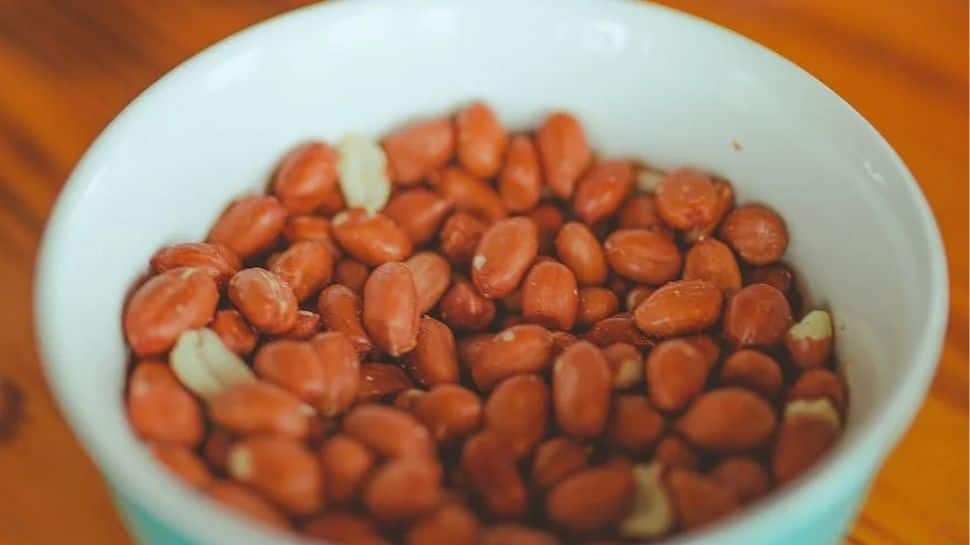Eating peanuts during the winter season can offer a myriad of health benefits, making them a wholesome and delicious addition to your diet. Adding peanuts to your winter diet can offer a multitude of health benefits, from supporting your immune system to providing essential nutrients that contribute to overall well-being.
Here are ten reasons to include peanuts in your winter diet:
Rich in Nutrients:
Peanuts are packed with essential nutrients such as protein, fiber, vitamins, and minerals. Consuming them provides a well-rounded nutritional boost, helping to meet your body’s requirements during the colder months.
Also read: Eye Related Problems Increase Due To Air Pollution In Delhi, Says Doctors
Energy Boost:
The high protein content in peanuts makes them an excellent source of energy. As the body works harder to stay warm in winter, incorporating peanuts into your diet can provide a sustained energy release, keeping you active and alert.
Heart Health:
Peanuts contain heart-healthy monounsaturated and polyunsaturated fats. These fats can help lower bad cholesterol levels, reducing the risk of cardiovascular diseases, which can be especially beneficial when the colder weather may put additional strain on the heart.
Immune System Support:
Peanuts are rich in immune-boosting nutrients like zinc and vitamin E. A robust immune system is crucial during winter to fend off common colds and infections, making peanuts a valuable addition to your defense against seasonal illnesses.
Weight Management:
Despite their calorie density, studies suggest that including peanuts in moderation may actually aid in weight management. The combination of protein and healthy fats helps promote satiety, reducing the likelihood of overeating and unhealthy snacking.
Blood Sugar Regulation:
Peanuts have a low glycemic index, meaning they cause a slower rise in blood sugar levels. This can be particularly beneficial for individuals looking to manage their blood sugar, a concern that becomes more pronounced in winter months.
Improved Mood:
Peanuts contain amino acids that play a role in the production of serotonin, a neurotransmitter that contributes to feelings of well-being and happiness. Including peanuts in your diet may help combat the winter blues and contribute to overall mental health.
Bone Health:
Winter can sometimes limit sun exposure, affecting vitamin D synthesis. Peanuts are a good source of phosphorus, a mineral that plays a crucial role in maintaining strong and healthy bones, complementing the body’s vitamin D levels.
Reduced Inflammation:
The antioxidants in peanuts, such as resveratrol, have anti-inflammatory properties. Consuming peanuts may help mitigate inflammation, which can be exacerbated in colder months and contribute to joint pain.
Healthy Skin:
The combination of vitamins E and C in peanuts contributes to healthy skin. During winter, when the skin is prone to dryness, these vitamins act as antioxidants, promoting skin elasticity and hydration.















































